Many a Tuesday afternoon has seen the AWS (Adam Walker Studio) crew (plus general ring-ins) engage in cut throat competitive (and co-op) contest via traditional board and card games, all in the name of research. The goal was to identify good game design and gain an understanding of what works well within the old school gaming context – to aid in a few projects that are in development at the studio.
So here are a few of the (many) game that have been played during these sessions, with my thoughts (and those of the Big Boss and Aldrich).
Runebound
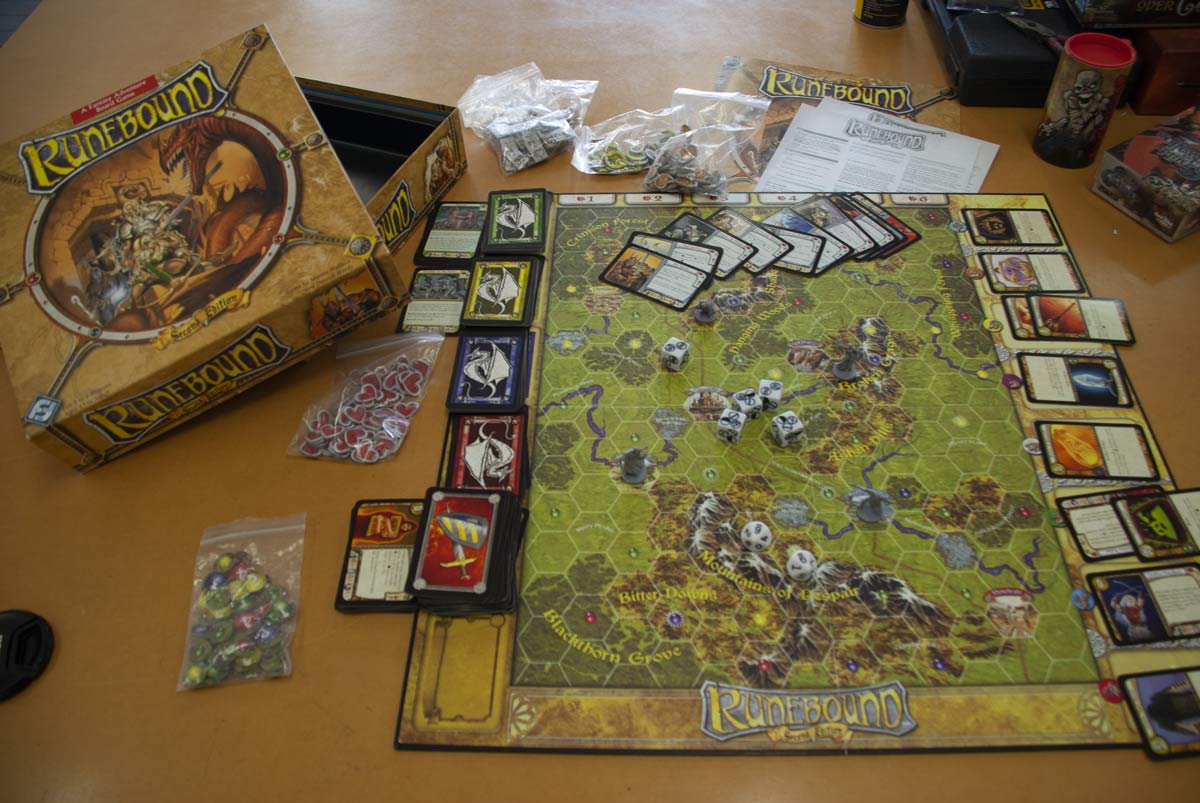
Runebound pits players against a deck of enemies separated by rank, players each take control of a unique character, where they need to attack enemy spawn locations throughout the game board in order to level up and become powerful enough to take on the end game boss.
Some interesting features include the use of symbolic dice where each symbol represents a terrain space and is used to determine a player’s movement across the board, a three phase combat system, where players choose their strongest stat to attack with and defend in the others. Combat outcome is determined via dice roll added onto a player’s base combat stat, which they can improve through killing monsters and gaining experience points to level up.
I really enjoyed the xp and item system, but felt there was a lack of player co-op gameplay, and the use of more side quests would have helped to improve the overall experience.
Thoughts from the boyz:
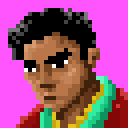
The great levelling system, increasing difficulty and a huge amount of item possibilities makes this my favourite game so far.

Provides a very simple but satisfying D&D experience without the need for someone to be DM (which IMHO is the downfall of Descent). Would benefit from either being more PvP or co-op, currently not really either.
Space Hulk: Death Angel
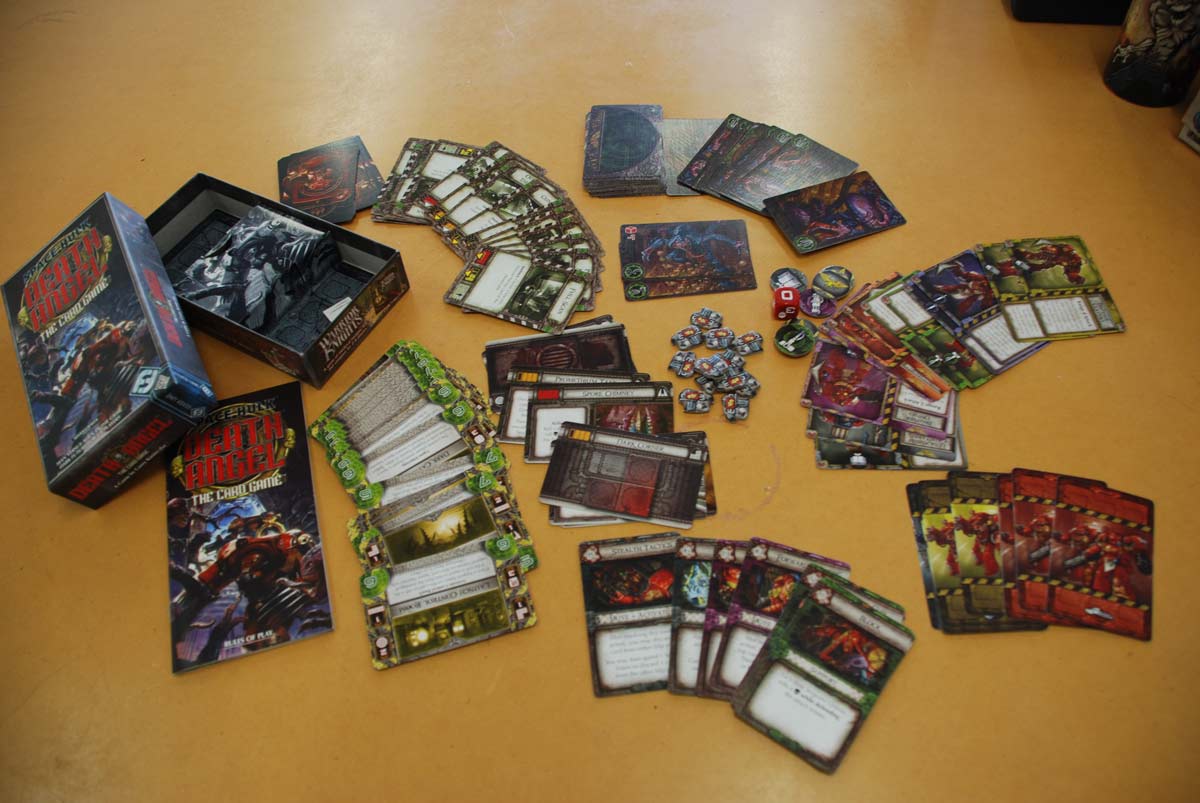
Each player controls a set of Space Marine cards placed on the table in a column which contains all player Marines. Players need to overcome enemies that spawn on either sides of the Space Marine column, in order to progress through room cards and make their way to the final room and the boss showdown.
Space hulk is an excellent co-op game where players need to strategise their individual actions for success of all players as a group. We found the game to be well balanced, but as luck plays a huge role in the groups success, each game session can be quite varied.
We felt initially that the game had a steep learning curve, but once the ruleset was understood, the game played really smoothly.
Thoughts from the boyz:

One word, teamwork! Combining the constant enemy spawns, special abilities and a clever game layout, this game is an absolute blast to play with friends….after you get pass the steep learning curve.

A little too steep to learn initially but overall a great fun co-op experience, that really require players to sacrifice personal reward for the party’s survival. A fav of mine – perhaps just fond memories of playing the Space Hulk game decades ago.
Dominion
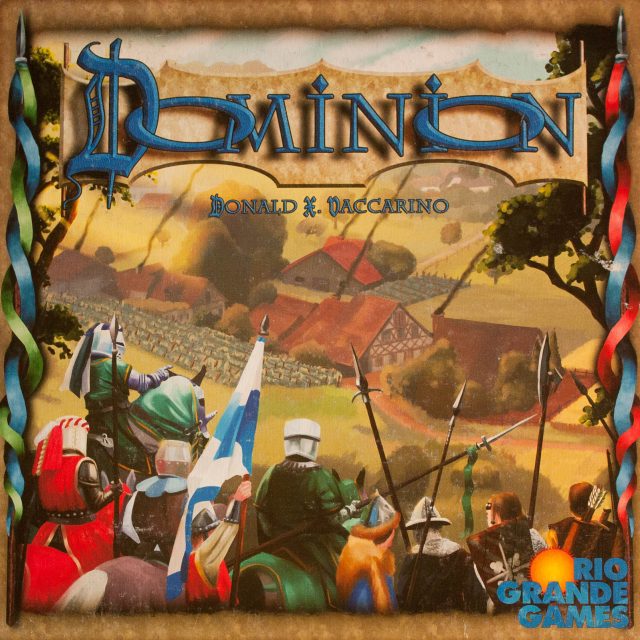
Competitive deck building game, where all players start out with an identical deck, and make choices throughout the progress of the game on what to fill their deck with.
Nicely balances out individual player progress through the use of victory cards which players need to collect in-order to win the game at the end-game point tally, but the trade-off being that these cards are useless during the actually turn-by-turn playing of the game – lending advantage to players with less victory cards.
Thoughts from the boyz:

Now here’s a cleaver game that enables you to dramatically customise any play session by using different card types. The goal is simple and I was pleasantly surprised how deep the game mechanics really are. Only problem is that I never win 🙂

Awesome game that plays like a collectable card game (CCG) without the ridiculous issue of rich kids having more powerful decks. The option of using random kingdom cards provides massive re-playability.
Defenders of the Realm
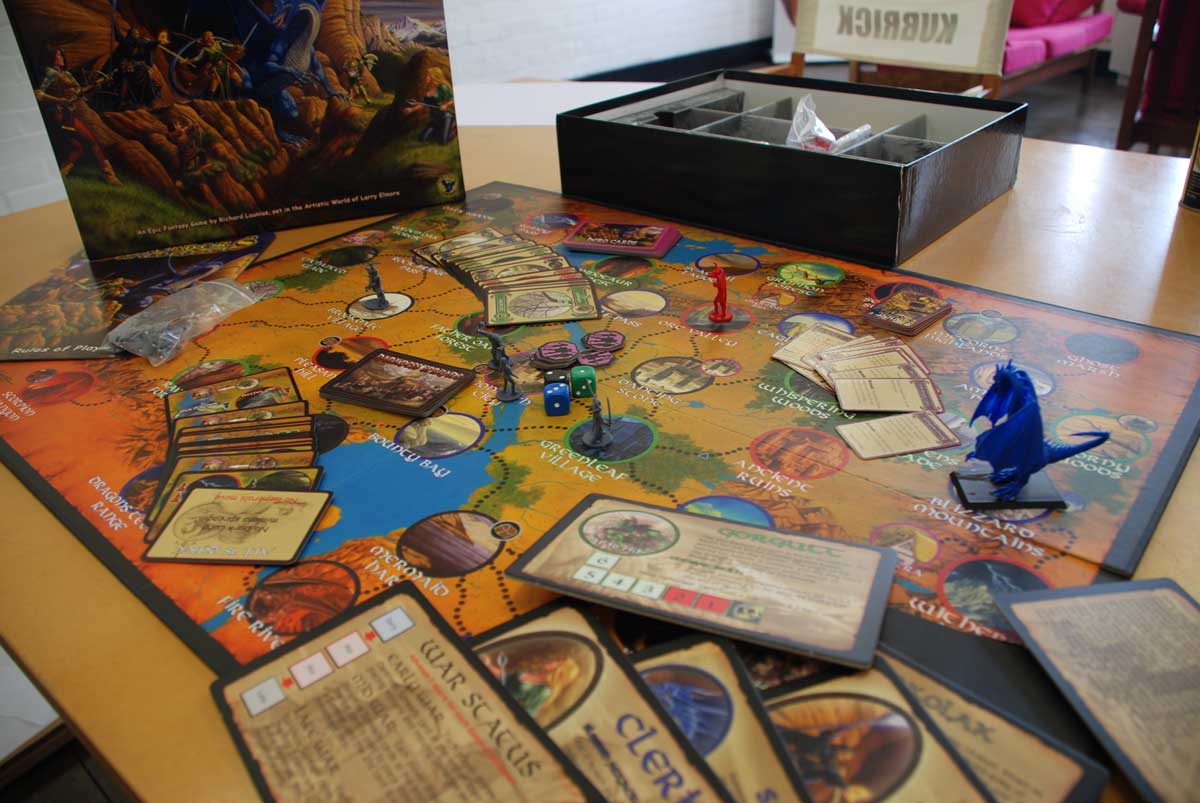
Introduces players to the concept of cleansing the land of evil through the use of a “darkness spreads” mechanic where players are forced to actively cull minions from the board. Combat is based around a card suit collection mechanic that drives the primary goals of killing the bosses. Players are required to amass cards for each boss type in order to guarantee a successful kill.
The game employs the use of a character class that each player can control, but I felt that this idea took back stage, and I feel I didn’t become attached to my class.
Another idea was a quest mechanic drawing the players attention away from main goal, while intriguing, players rarely encountered quest cards, so it felt like an after thought, would had been nice to make side quests more important and effect outcome of the game.
Thoughts from the boyz:

Interesting co-op mechanic, but the quests are token gestures and overall the game progression just escalates in a linear fashion making replays relatively boring.
Gauntlet of Fools
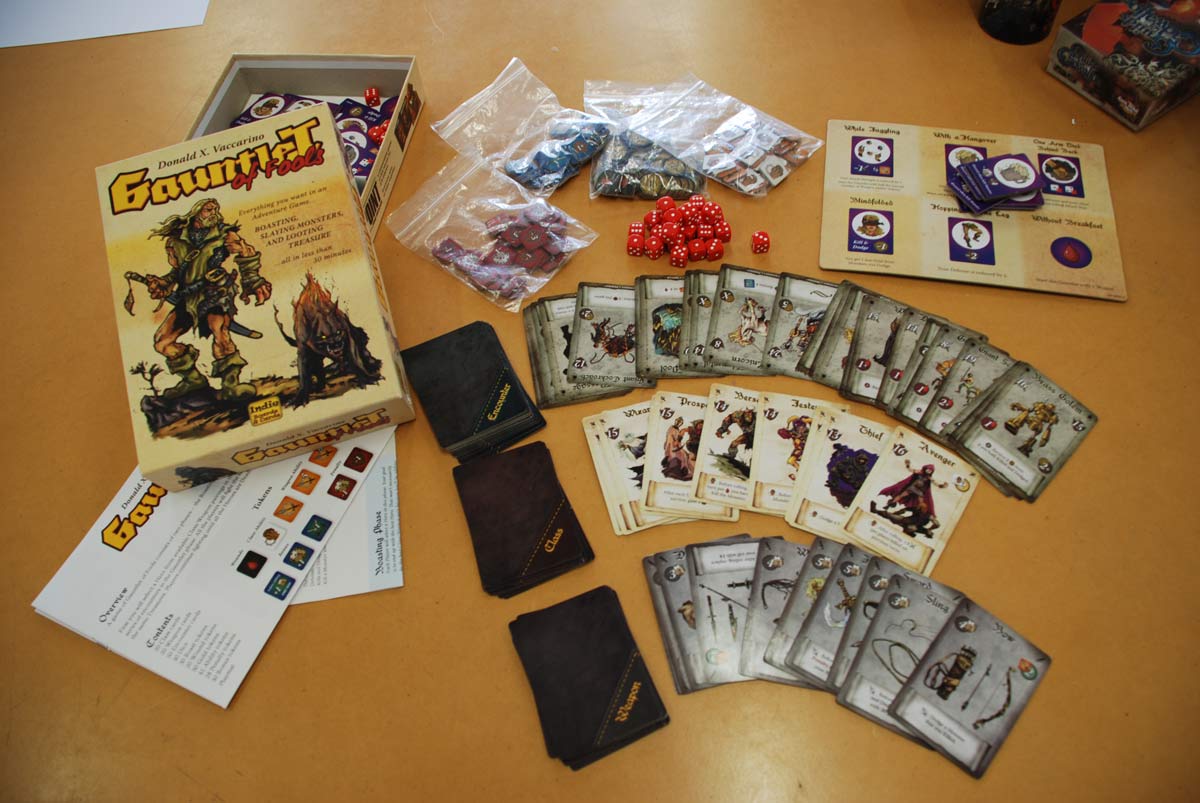
Contains a nice setup mechanic where players bid for a class and weapon combination randomly generated at the start of a game. This is done in a boasting phase where players try to get the combo that like by adding “flaws” to the character – effectively balancing out strong vs weak combinations, where players may boast a disadvantage to take a strong combination from another player. While this idea sounds intuitive in theory, in practice doesn’t really work well unless players have a thorough understanding of class / weapon combination strengths.
The main gameplay itself is nice and short – progressing through a deck of enemy encounters that each player is required to overcome individually (but at the same time as the other players), the game ends when all players are dead and the victor is determined by the player with the most gold accumulated.
Thoughts from the boyz:

It’s good to see a game that combines simple RPG elements and can be finished within half an hour. Although it lacks the depth you’d expect from an RPG game.

The short game time makes for a really fast but fun experience, my only comment would be to provide a mechanism for more novice players to help identify awesome class/weapon combos – as it stands a more experienced player can own a newbie as a result of the bidding phase.
King of Tokyo
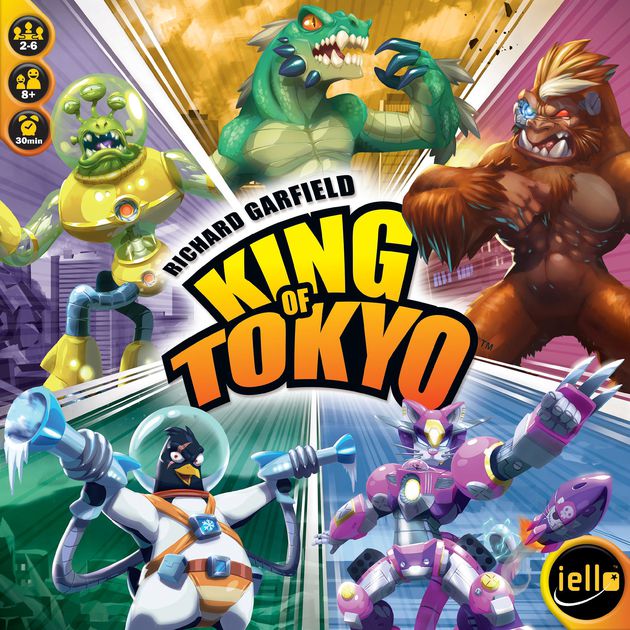
Kings of Tokyo is a take on an interesting variation of the king of the hill concept, where players take control of Kaiju (giant monsters) and must out wit and defeat each other, by controlling Tokyo city in order to gain victory points.
Game balance works in such that while a player’s Kaiju is inside Tokyo, they not only receive victory points but also increased attack towards all other players at the cost of defence, or they can choose to surrender Tokyo to another aspiring “King of Tokyo”.
The game also deploys the use of action cards, that players can buy to aid in their efforts towards becoming king of Tokyo.
Thoughts from the boyz:

An awesome family friendly game. One of those easy pick up and play designs that can get you hooked for hours. The artwork style is quite refreshing.

Great party game (particularly if shouting “I’m King of Tokyo” is required) – would be good if the upgrade cards saw a bit more use, our games tend to only have 2-3 cards used by each player.
Castle Panic
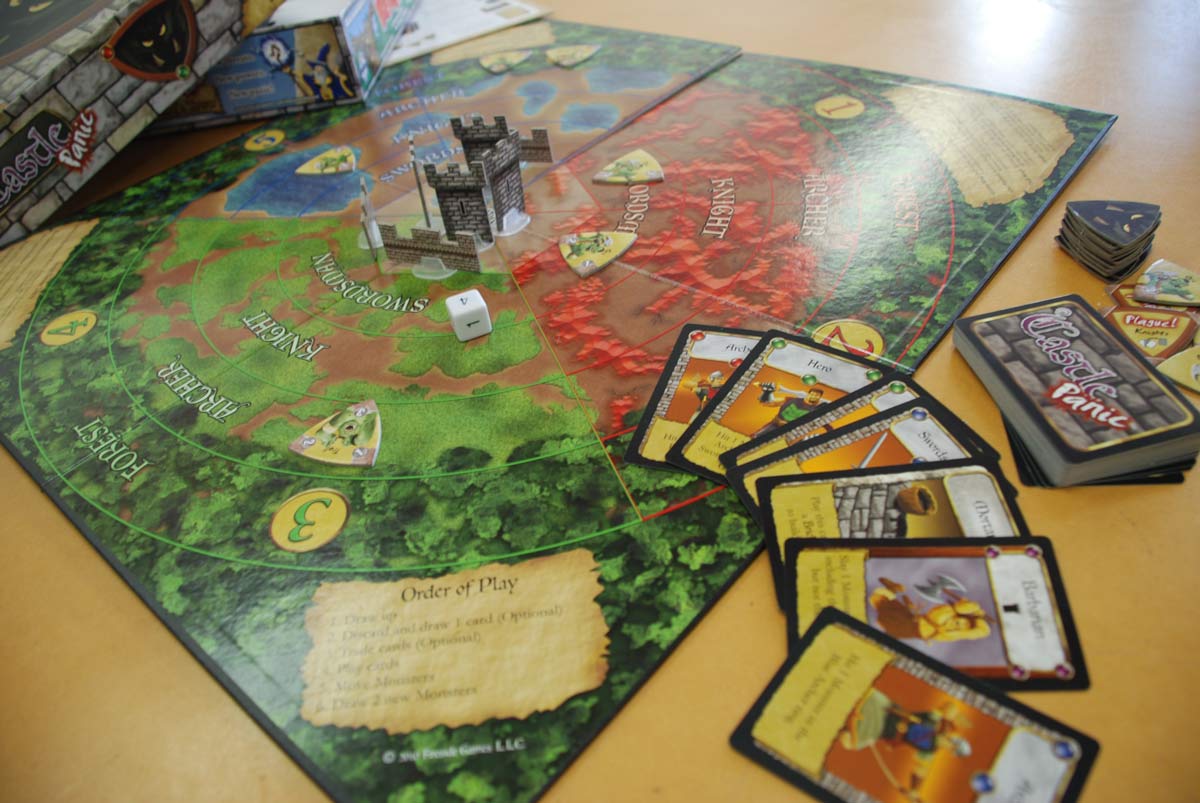
Castle Panic pits players against swarming monsters in a cooperative castle defence game where players need to defeat all monsters before the castle keep is destroyed.
The game incorporates an interesting monster spawn and movement system through the use of a circular segmented game board, similar to a dart board, where each wedge is coloured and segments labelled by class. Monsters progress from the outer section down the wedge through each segment towards the centre of the board to the castle location.
This segmented board layout drives combat through the use of card types that relate to each segment on the board and the distance from the castle, for example. a blue Archer card can only attack monsters inside the blue coloured wedge and located in the outer “Archer” section of the game board.
We found the cooperative game aspect of trading cards between players intuitive, but used an altered rule where there was no limit upon the number of cards players could trade among themselves, which we felt greatly improved game play.
Thoughts from the boyz:

It has a nice design, but it’s one of my least favourite games. Even though it’s a co-op game, the game isn’t as fun as the others.

The first few plays were great fun (with real panic setting in as we got cascading mega spawns), but latter games were a disappointment – the spawning of monsters is too random and without intrinsic balance to make gameplay balanced and enjoyable.